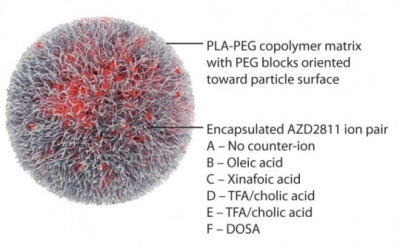- Latest news▼
-
12:16, April 19 Scientists grow human mini-lungs in lab

-
10:23, April 19 JAMA Oncology: Urine test can help rule out high-grade prostate cancer with almost 100% accuracy, study shows

-
18:00, April 18 Daily Mail: Elderly woman in China gets infected with brain-eating amoeba

-
14:19, April 18 Obesity: exercising before breakfast helps you lose weight faster

-
10:42, April 18 The Conversation: childhood trauma can cause pathological hoarding

-
08:37, April 18 Daily Mail: Satiating food reduces cravings for sweets, nutritionist says

-
18:22, April 17 First Armenian-German Conference entitled “Heart Failure Spring School”

-
08:38, April 17 Why do kids usually recover from COVID-19 more easily than adults?

-
14:37, April 16 Daily Mail: intermittent fasting is not suitable for children and women before their periods

-
16:41, April 15 Cell: in carriers of defective BRCA2 gene, sugar consumption increases cancer risk

-
15:04, April 15 305 cases of measles recorded in Armenia so far in 2024

-
14:38, April 15 Food and Environmental Virology: tea contributes to effective coronavirus control

-
12:41, April 15 Daily Mail: vitamin A, B3 and E supplements can be dangerous

-
10:56, April 15 Diabetes Care: evening physical activity is good for the heart

-
08:27, April 15 Women are more susceptible to blood loss and death during bypass surgery than men, researchers say

All materials
Scientists find way to reduce targeted cancer drug's toxicity

In one of the first efforts to date to apply nanotechnology to targeted cancer therapeutics, researchers have created a nanoparticle formulation of a cancer drug that is both effective and nontoxic -- qualities harder to achieve with the free drug. Their nanoparticle creation releases the potent but toxic targeted cancer drug directly to tumors, while sparing healthy tissue.
The findings in rodents with human tumors have helped launch clinical trials of the nanoparticle-encapsulated version of the drug, which are currently underway. Aurora kinase inhibitors are molecularly targeted agents that disrupt cancer's cell cycle.
While effective, the inhibitors have proven highly toxic to patients and have stalled in late-stage trials. Development of several other targeted cancer drugs has been abandoned because of unacceptable toxicity. To improve drug safety and efficacy, Susan Ashton and colleagues designed polymeric nanoparticles called Accurins to deliver an Aurora kinase B inhibitor currently in clinical trials.
The nanoparticle formulation used ion pairing to efficiently encapsulate and control the release of the drug. In colorectal tumor-bearing rats and mice with diffuse large B cell lymphoma, the nanoparticles accumulated specifically in tumors, where they slowly released the drug to cancer cells. Compared to the free drug, the nanoparticle-encapsulated inhibitor blocked tumor growth more effectively at one half the drug dose and caused fewer side effects in the rodents.
Follow NEWS.am Medicine on Facebook and Twitter
- Video
- Event calendar
- Archive
- Most read
month
week
day
- WHO: Nigeria pioneers revolutionary meningitis vaccine 1213
- One-third of women experience menstruation-related migraines, most often during premenopause - study 1209
- Food and Environmental Virology: tea contributes to effective coronavirus control 1137
- Daily Mail: vitamin A, B3 and E supplements can be dangerous 1134
- Cell: in carriers of defective BRCA2 gene, sugar consumption increases cancer risk 1100
- 305 cases of measles recorded in Armenia so far in 2024 1093
- Women are more susceptible to blood loss and death during bypass surgery than men, researchers say 986
- Diabetes Care: evening physical activity is good for the heart 940
- Daily Mail: intermittent fasting is not suitable for children and women before their periods 932
- First Armenian-German Conference entitled “Heart Failure Spring School” 694
- Obesity: exercising before breakfast helps you lose weight faster 603
- The Conversation: childhood trauma can cause pathological hoarding 595
- Daily Mail: Elderly woman in China gets infected with brain-eating amoeba 594
- Why do kids usually recover from COVID-19 more easily than adults? 591
- Daily Mail: Satiating food reduces cravings for sweets, nutritionist says 558
- Find us on Facebook
- Poll





